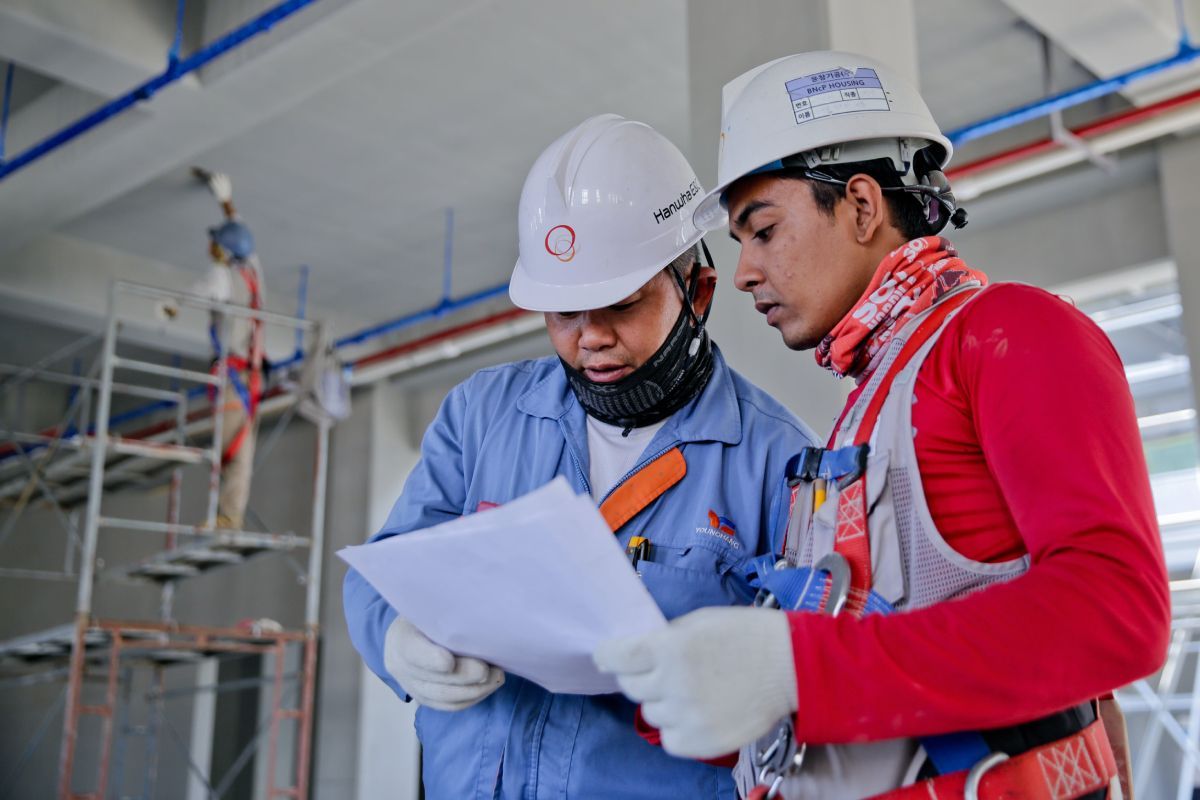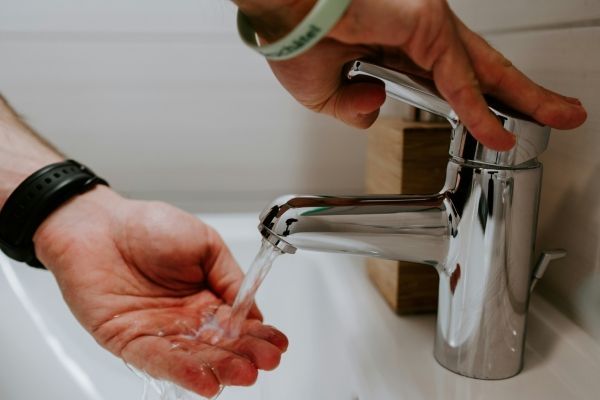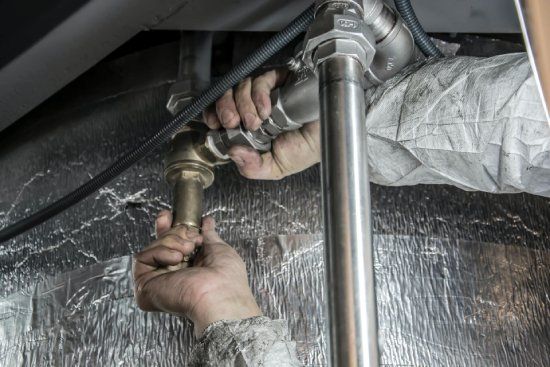Master Plumbers Blog
Top Tips for Preventive Maintenance in Residential Plumbing
Imagine it's a typical morning, and you're enjoying the peaceful view outside your home, sipping your coffee, when you suddenly notice an unusual damp patch on your kitchen floor. As you investigate, you find that a slow leak under the sink has been silently causing damage for weeks.
This all-too-common scenario is a reminder of the importance of preventive maintenance in residential plumbing. If you're a homeowner or a building landlord, being vigilant and proactive with plumbing can prevent such unwelcome surprises and ensure the longevity of your property.
Here are some essential tips to equip you with practical and effective strategies for plumbing maintenance:
Inspect Plumbing Regularly
Regular inspections are a fundamental part of preventive plumbing maintenance for homeowners in Dunedin and throughout New Zealand. During your inspections, look for signs of leaks, like damp patches, water stains, or musty smells, especially in less-frequented areas of your home.
Monitoring your water meter is also advisable; a noticeable increase in the readings, even if your water consumption remains more or less the same, could signal a hidden leak. These simple checks are vital in identifying and addressing minor issues before they become significant problems.

Schedule Annual Professional Inspections
While the above-mentioned regular checks are important, you can take them a step further by scheduling annual inspections with a professional. Aside from their expertise, professional plumbers can also take into account unique local environmental and infrastructural factors that can affect your plumbing in surprising ways.
If you live in Dunedin, engaging with
plumbers Dunedin locals trust for these inspections can uncover hidden issues, such as unseen leaks or potential vulnerabilities, that might not be readily noticeable. One such trusted plumbing service is Mains Plumbers, which provides high-quality work at fair prices. By relying on the expertise of seasoned professionals, you ensure your plumbing system is meticulously evaluated and kept in good shape.
Keep Drains Clean to Prevent Clogs
A clogged drain often leads to more serious plumbing issues, so it's best to head off this potential problem sooner rather than later through regular cleaning. To clean minor clogs, you can try to DIY it through the use of a plunger or a drain snake. Also, avoid disposing of grease, coffee grounds, and non-biodegradable materials in your sink, as they are common culprits of blockages.
Monitor Water Pressure Regularly
While it might feel great while you’re taking a shower, constant high water pressure can strain your plumbing system. Conversely, low pressure can also indicate a problem with your plumbing. As a homeowner, make it a habit to check the water pressure to ensure it stays within a safe range (typically around 40-60 psi).
Investing in a simple water pressure gauge can help you monitor this, allowing you to adjust accordingly or seek professional help ASAP. Do note that in some areas, fluctuations in water pressure can be more common due to local water supply systems.
Prevent Pipe Freezing in Cold Climates
During the colder months, especially in the chillier parts of New Zealand, pipes are at risk of freezing. This can cause pipes to burst and other significant damage to the entire plumbing system. To avoid this situation, ensure that your pipes are well insulated.
This is particularly important for pipes in unheated areas like basements or garages. During extreme cold spells, keeping a trickle of water running from faucets can be helpful to prevent freezing. An extra tip is to pay attention to weather forecasts and prepare accordingly to save you a lot of trouble and expense.

Clean Faucets and Showerheads Routinely
Over time, mineral deposits from water can clog and reduce the efficiency of faucets and showerheads, especially in areas with hard water. Hence, regular cleaning of these fixtures is essential. A simple and effective method is to soak them in a vinegar solution, which helps dissolve mineral buildup. Routine cleaning of these water fixtures ensures a consistent water flow and extends their lifespan.
Check Appliance Hoses for Damage
During routine checks, the hoses of appliances like washing machines and dishwashers can sometimes be overlooked. Unfortunately, these parts are prone to wear and tear; if you don’t inspect them regularly, you may end up dealing with unexpected leaks or bursts.
Regularly inspect these hoses for any signs of bulging, cracking, or leaking. If the hoses are old, replace them immediately. Taking these steps becomes even more crucial in places where temperature variations can affect appliance durability. A routine check every few months can help avoid mishaps.
Discourage Improper Disposal Practices
A significant part of plumbing maintenance is knowing what not to put down your drains. In the kitchen, avoid disposing of grease, oil, and food scraps in the sink, as these can solidify and cause blockages. In the bathroom, don’t indiscriminately flush things down the toilet.
Items like wipes (even those labelled as flushable), cotton balls, and sanitary products should be disposed of in the trash, not the toilet. Educating household members on these practices to keep your home’s plumbing system in great shape.
Upgrade to Efficient Water Fixtures
Upgrading to water-efficient toilets, showerheads, and faucets is not only environmentally friendly, but also beneficial for your plumbing system. Such fixtures both reduce water usage and minimise strain on your plumbing, leading to lower water bills and fewer leaks. Furthermore, newer fixtures often have advanced features that enhance their longevity and performance.

Learn Basic Plumbing Repairs
There are times when it’s not absolutely necessary to call a plumber. For instance, a running toilet can be fixed in about 10 minutes. It all depends on how serious the issue is. Learning how to perform basic plumbing fixes can prevent small issues from escalating into major problems, resulting in time and cost savings.
These skills are also particularly valuable to have if you live in an area where access to immediate professional help might not always be possible.
Preserving Your Property With Proper Plumbing Care
By implementing these practices, you can ensure the health of your home’s plumbing system, ultimately leading to peace of mind and financial savings. While some tasks can be managed independently, there's always value in seeking advice or services from skilled plumbers for more complex issues.
Let this guide be your first step towards a well-maintained and efficient plumbing system that contributes to the well-being of your property and the environment. Remember, through regular care and attention, you can significantly impact the longevity and efficiency of your home's plumbing.





